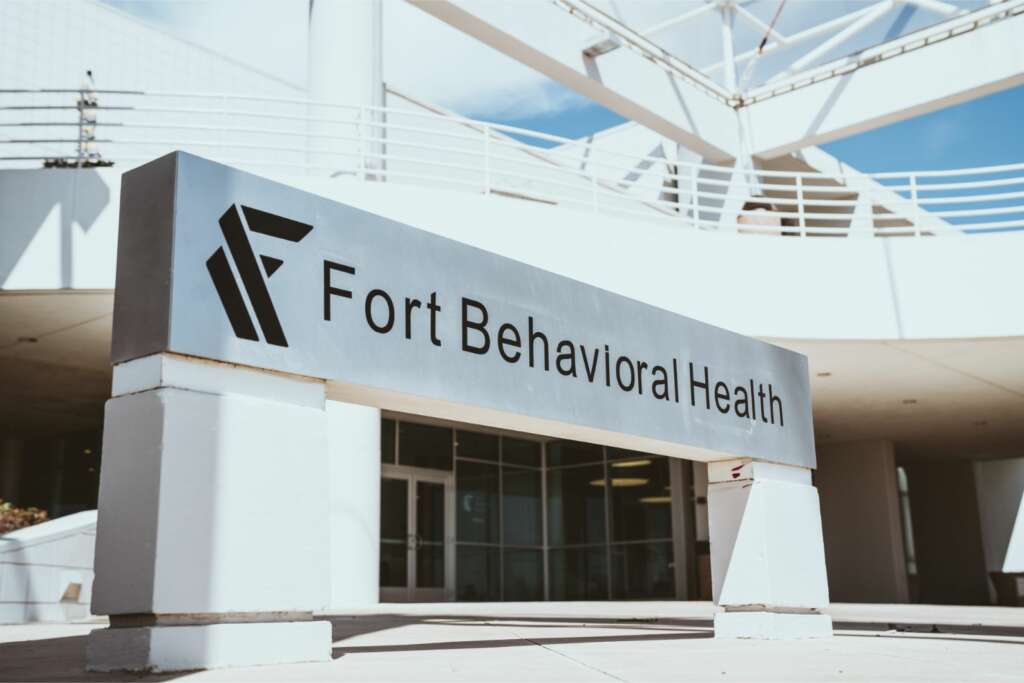A Division of Fort Behavioral Health
DFW Treatment Helpline

How Our Helpline Works
For those seeking addiction treatment for themselves or a loved one, DFWTreatmentHelpline.com is a trusted source offering informative, realistic solutions. Our team is standing by to discuss your treatment options 24/7. All calls are answered by FBH and are completely confidential. We will discuss your current situation and whether Fort Recovery is a fit for you. To view more information about Fort Recovery and treatment program options, visit www.recovery.fortbehavioral.com.
If Fort Recovery is not a fit, our team will offer placement assistance in the form of trusted outbound referral options. Our helpline is offered at no cost to you and with no obligation to enter treatment. Neither DFWTreatmentHelpline.com, nor FBH receives any commission or other fee for this service.
How Chat Works
When you use the free chat feature, you will reach an automated assistant representing Fort Recovery, who will help you navigate your treatment options confidentially. The automated assistant will ask you questions and provide you with basic information to help you start your journey to recovery. If you would like to speak with a Fort Recovery representative directly, a phone number is available in the chat window. When you call this phone number, you will reach Fort Recovery employees who work solely for Fort Recoery and will discuss with you the treatment options available at Fort Recovery.
Our chat service is offered at no cost to you and with no obligation to enter into treatment. Neither DFWTreatmentHelpline.com nor FBH receives any commission or other fee that is dependent upon which treatment provider a visitor may ultimately choose.
All chat users are invited to opt in to receive additional communications from Fort Recovery and FBH. Opting into these communications is entirely voluntary and you may opt out from receiving messages at any time. Chat users can select their preferred method of contact. Standard messaging and data rates may apply for those who opt in for SMS.
How Self-Service Verification of Benefits Works
By entering your insurance information into our free verification of benefits tool, Fort Recovery will attempt to verify your health insurance benefits and/or necessary authorizations on your behalf to determine if your insurance benefits may be accepted by Fort Recovery. Please note, we only provide a quote of benefits and/or authorizations. We cannot guarantee payment or verification eligibility as conveyed by your health insurance provider will be accurate and complete, and we cannot verify or guarantee coverage and/or eligibility for treatment services rendered at non-FBH treatment centers. Payment of benefits are subject to all terms, conditions, limitations, and exclusions of the member’s contract at time of service.
Your health insurance company will only pay for services that it determines to be “reasonable and necessary.” Fort Recovery will make every effort to have all services preauthorized by your health insurance company. If your health insurance company determines that a particular service is not reasonable and necessary, or that a particular service is not covered under your plan, your insurer will deny payment for that service and it will become your responsibility. For more information about the terms and conditions of your individual plan, please contact your health insurance provider.
Identifying an Appropriate Treatment Provider
The process of finding a treatment provider can feel overwhelming. Resources, like facility websites or DFWTreatmentHelpline.com and the following guide, can help you determine which options are best for you or your loved one.
- Identify proper accreditation and licensure. Appropriate state licensure is important in determining what services and levels of care are permissible to be rendered at a treatment center. Some facilities voluntarily obtain accreditation from the Joint Commissionor CARF, indicating that they have met quality and safety standards that go beyond those required by the state.
- Determine if the program is a clinical match. Successful outcomes rely on appropriate clinical care. There is no one-size-fits-all method to treatment. When searching for treatment, ask an admissions counselor for details on the clinical program. Are the methodologies utilized evidence-based (meaning scientifically proven to produce better outcomes)? Does the treatment center employ medically licensed healthcare providers? Will the center provide the name and credentials of its providers? Has the treatment center published any outcome studies? Make note of the questions you are asked by the admissions team, and if they ask you for your medical history. This will help you and the facility’s staff determine if your needs match with the clinical program offered.
- Assess your financial options. Discuss with your insurance provider or an admissions counselor if treatment is “in-network.” If your insurance provider will not cover treatment or a portion of treatment, determine what additional expenses you may have to cover ahead of time, and ask if payment plans are available.
- Get as much information as possible. Read about the staff’s experiences, skills, and licenses online, and view videos and photos and read reviews to “see” what the treatment experience will be like. Ask an admissions counselor about how the intake, treatment, and discharge process work, and about what happens after treatment.
- Look for red flags and possible warning signs. Some treatment centers advertise a “cure” or an unrealistic success rate. Others may only ask you about your ability to pay, and then determine a “fit” without getting any medical or clinical information about you. Some possible bad actors will even offer you gifts, cash incentives, help with obtaining insurance, or free travel. These are possible signs of illegal or unethical behaviors that can possibly harm you or your loved one.
